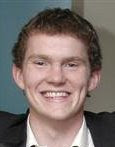Participants returned to the workshops this morning with renewed vigour, after their break the previous evening. Some of the teams are moving on to their second and third prototypes at this stage and the work spaces are a cacophony of noise with participants anxiously experimenting with their various projects. Participants were delighted to be finally able to spend a full, interrupted day in the workshops, as
their projects are now entering a crucial stage. There is still time for teams to try out and build different designs but come the weekend they will have to have centered in on the specific prototype they want to build, otherwise there will simply not be enough time left!

Some quality craftsmanship from Joshua on the newly refined Charcoal Crusher

Sunil using bike parts for the rope way team

Participants get to grips with some welding for their projects
After a tiring day, we organized a trip to Bikes not Bombs, a Boston based non-profit, for the participants. We made sure to clarify that the trip was optional but the prospect of free dinner meant that very few of the participants stayed at the dorms! Bikes not Bombs were established in 1985 and aim to provide bicycle technology as a concrete alternative to war and environmental destruction. They work with community partners in Tanzania, Guatemala and a host of other countries and have sent over 33,000 bikes to Central America, the Caribbean and Africa (and New Orleans) in the last 24 years, providing old or damaged bicycles to local villages. The home organization, such as Global Alliance in Tanzania, then works to fix these bicycles, sell them at reasonable prices to the locals, and in the case of Bernard, dismantle them to work on new pedal powered forms of technology!
 The dinner table at Bikes not Bombs
The dinner table at Bikes not BombsAfter a quick potluck dinner, with meals provided by Crossman, John, Zubaida, Sumit and other organizers we were free to move onto some quick presentations. The founder of Bikes not Bombs, Carl Kurz, gave us a brief introduction into their work before opening the floor up to the IDDS participants. Laura then introduced our two presenters for the evening, Shaibu Laizer and Carlos Enrique Marroquin Machan, from Tanzania and Guatemala respectively. Both Shaibu and Carlos are direct beneficiaries of bikes from the organization, which have been sent to their home countries, and as such were delighted to present!

Laura introduces IDDS to the folks fat Bikes not Bombs
Shaibu was understandably nervous, as it was his first time presenting to a group, but he overcame this and gave us an insightful presentation about the impact that an organization like Global
Alliance can have on empowering communities and young people in particular. He talked in detail about his respect for the organization based on his own experience, growing up as an orphan in Tanzania and not having the financial means to complete his education. Global Alliance gave him the chance to work with and for the community, under his mentor Bernard
Kiwia, and he is now employed as a bike workshop manager in his native
Arusha.
Shaibu's presentation, and the confident young individual in front of us, sent an extremely powerful message about the importance of grassroots organizations such as Global Alliance. To find out more about the work that Global
Alliance does in Africa visit
http://www.globalallianceafrica.org/ .
 Bernard and Shaibu field questions about Global Alliance
Bernard and Shaibu field questions about Global AllianceWe were then given the opportunity to hear about the innovative work that is currently being done at
Carlos's workshop, Maya Pedal, in Guatemala. Carlos has come up with a variety of methods to harness energy using pedal power and had pictures of washing machines and a number of other appliances running without electricity. His organization then attempt to bring this technology to as many people in the community as possible but Carlos spoke of the difficulty inherent in this due to the current lack of funding available for his organization. Some participants were extremely interested in Carlos' technologies and we hope that the funding available from the
Rockefeller foundation can facilitate people like Joshua
Cholobesa, one of our Zambian participants, and Carlos working together on projects in the future. Find out more about Maya Pedal by visiting
http://www.mayapedal.org/ .
 Carlos presents his finely crafted work at Maya Pedal in Guatemala
Carlos presents his finely crafted work at Maya Pedal in Guatemala
 One of Carlos' technologies in action
One of Carlos' technologies in action




 Bernard and Shaibu field questions about Global Alliance
Bernard and Shaibu field questions about Global Alliance Carlos presents his finely crafted work at Maya Pedal in Guatemala
Carlos presents his finely crafted work at Maya Pedal in Guatemala One of Carlos' technologies in action
One of Carlos' technologies in action



No comments:
Post a Comment